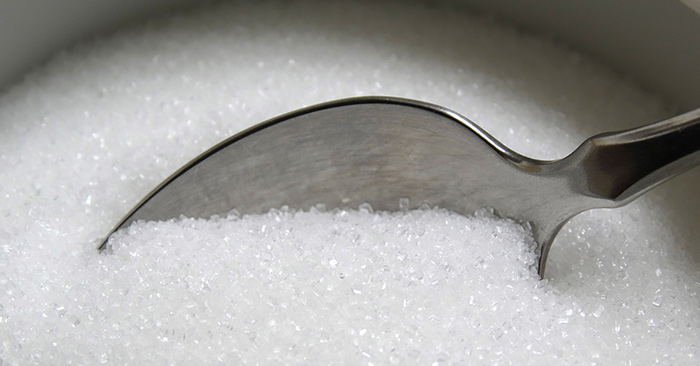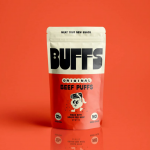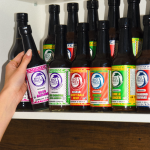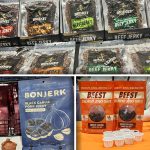“Misleading, Inaccurate, and Fear-mongering:” The Industry Reacts To WHO’s Aspartame Ruling

Popular sweetener aspartame has been dubbed a “possible carcinogen” by global health standards, but domestic experts don’t believe it’s cause enough to begin reformulating just yet.
Two World Health Organization (WHO) committees – the International Agency for Research on Cancer (IARC) and the Joint Expert Committee on Food Additives (JECFA) – this week released their anticipated findings from “independent but complementary reviews” of aspartame. The reviews concluded there is not convincing enough evidence available to determine that the amino acid-based ingredient can cause cancer in humans.
Although IARC has classified the substance as a “possible carcinogen,” JECFA reaffirmed its previous position that there is not enough proof to link the sweetener to cancer.
But the context around these rulings and their impact on future regulations, as well as on consumer perception, is not so simple.
IARC’s ruling has garnered significant industry pushback as many fear this classification will cause confusion and a fear of aspartame among consumers. Numerous organizations, including The American Beverage Association – which represents both Coca-Cola and PepsiCo, among others – and the Calorie Control Council (CCC), pointed to the fact that IARC is not a food safety agency or regulatory body and the agency cannot reliably assess human health risks as it does not consider dietary intake in its review process.
This isn’t the first time aspartame has come under the scrutiny by health officials either – and it’s the third time JECFA has reviewed the sweetener’s hazardous potential since it was introduced in the 1980s. This was, however, the first time IARC has looked into it.
The committee came to its conclusion using “peer-reviewed papers, governmental reports and studies conducted for regulatory purposes.” However, both JECFA and IARC’s rulings noted the lack of impact-specific evidence as they reached their respective conclusions.
“We need better studies with longer follow-up and repeated dietary questionnaires in existing cohorts,” said Dr. Moez Sanaa, head of WHO’s standards and scientific advice on food and nutrition unit. “We need randomized controlled trials, including studies of mechanistic pathways relevant to insulin regulation, metabolic syndrome and diabetes, particularly as related to carcinogenicity.”
Until then, JECFA will stand by its longstanding recommendation that it is safe for a person to consume 0–40 mg of aspartame per kilogram of body weight per day without putting themselves at risk for cancer. That metric means a 154 pound adult would need to consume nine to 14 cans of a drink containing about 300 mg of aspartame every day to exceed the recommended daily limit.
That’s the interpretation that the soft drink industry likes.
“There is a broad consensus in the scientific and regulatory community that aspartame is safe. It’s a conclusion reached time and time again by food safety agencies around the world,” said Kevin Keane, interim president and CEO of ABA, in a statement. “JECFA is … doing the more rigorous and comprehensive review, and most importantly, the risk to human health. JECFA’s conclusions will be what matters for consumers when it comes to health and safety.”
IARC’s ruling classifies the ingredient as a Group 2B carcinogen, which means there is limited evidence available to indicate aspartame causes cancer in humans, limited evidence linking it to cancer in lab animals, and “limited evidence related to the possible mechanisms for causing cancer.”
Nonetheless, Group 2B translates to “possibly carcinogenic” in IARC terms.
The U.S. Food and Drug Administration (FDA) said it disagrees with IARC conclusion. The agency said its team of scientists reviewed the evidence used by IARC before it began its investigation in 2021 and found the evidence they relied on had “significant shortcomings.”
“Aspartame is one of the most studied food additives in the human food supply,” said the FDA, in a statement. “FDA scientists do not have safety concerns when aspartame is used under the approved conditions. The sweetener is approved in many countries. Regulatory and scientific authorities, such as Health Canada and the European Food Safety Authority have evaluated aspartame and also consider it safe at current permitted use levels.”
Those sentiments were echoed by other industry gatekeepers including Calorie Control Council president Robert Rankin, who called out IARC for positioning its findings alongside those of “true scientific and regulatory” bodies. The CCC as well as ABA and FDA believe IARC’s action could be damaging to populations who don’t have access to the broader context, including that the agency has also deemed drinking hot water and working overnight as “possible carcinogens.”
“Consumers have a strong desire for reliable and science-based information and JECFA’s review reaffirms the overwhelming body of evidence that confirms aspartame is safe,” said Rankin in a statement. “To assert otherwise is misleading, inaccurate, and fear-mongering to the nearly 540 million people globally living with diabetes and millions of others managing their body weight who rely on and/or choose products that contain low- and no-calorie sweeteners such as aspartame.”

















